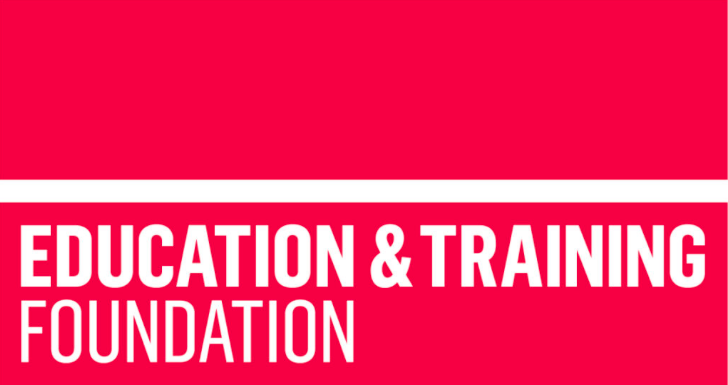A Story of Advanced Practice – the Present (2018-2022)
The era of the Advanced Practitioner: a story of ownership and empowerment
Our story starts in 2018 when, following a competitive tender, the Education and Training Foundation commissioned two delivery partners – touchconsulting Ltd and CETTAcademy – to design and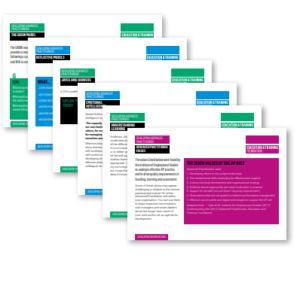 deliver a professional development programme to develop the knowledge, skills and behaviours of Advanced Practitioners (APs). Our team designed the first year to validate the Foundation’s own research (Tyler et al, 2017), in practice, by developing an AP role specification derived from that research and secondly, to evaluate the effectiveness and cost-efficacy of different ways of delivering professional AP development. Each year has had a different iterative focus:
deliver a professional development programme to develop the knowledge, skills and behaviours of Advanced Practitioners (APs). Our team designed the first year to validate the Foundation’s own research (Tyler et al, 2017), in practice, by developing an AP role specification derived from that research and secondly, to evaluate the effectiveness and cost-efficacy of different ways of delivering professional AP development. Each year has had a different iterative focus:
- 2018-2019 Evaluating the AP-type role across provider types
- 2019-2020 Enhancing, extending and embedded the AP-role in organisations
- 2020-2021 Creating conditions for AP teams to support all
- 2021-2022 Supporting organisations to create the conditions for APs to lead quality improvements.
Each focus informed programme design, and each year built on the previous, providing progression opportunities for APs to continue their journeys, or join for the first time on a pathway that met their and their organisation’s needs.
The programme has grown and evolved over the four years.
The sector now has access to a powerful, cutting-edge, evidence-informed, multi-strand professional development programme for APs. The architecture comprises expert-led CPD (‘Developing APs’ and Expert-led Advanced Practice CPD modules) and peer-supported and peer-led professional learning (Constellations, Skylarks, Festival Fridays).
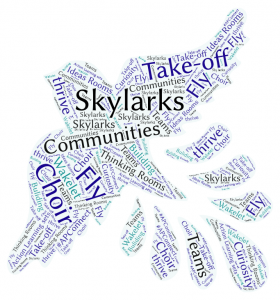

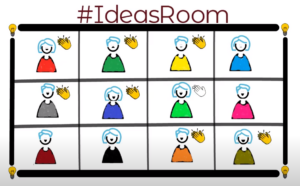
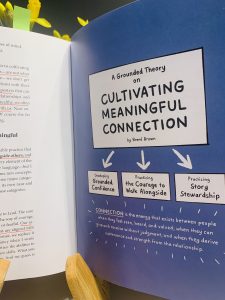
Northstar Train-the-Trainer in Advanced Practice pathway
We will teach you what we’ve learnt about designing, teaching and evaluating powerful AP professional development (both expert-led and peer-supported/peer-led) through the Northstar Train-the-Trainer in Advanced Practice pathway. We are thrilled you are joining us on this journey. ⭐️⭐️⭐️
Artefacts
Each programme pathway has developed its own unique artefacts over the last four years; packaged here as resources and evidence and stored in the APConnect Living Archive. These artefacts take multiple forms: cards,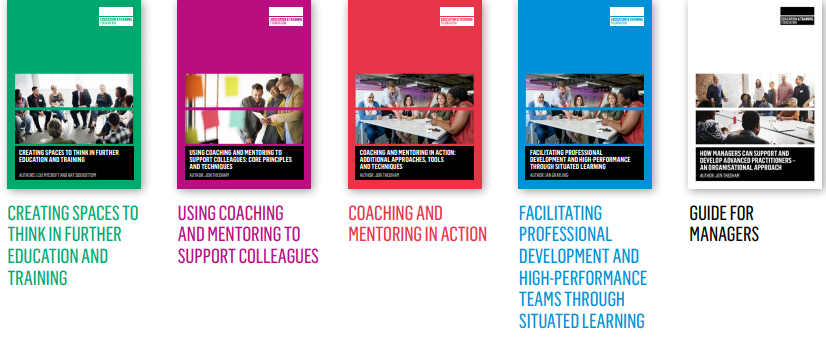 guides, research reports, slides, Padlets, case-studies, evaluation reports, AP led video-presentations, landing pages, wakelets, tweets, programme assessor reports, reflections, images and so on. Most are outward facing and available to the AP (and wider) community. They are authored and co-authored by numerous stakeholders or characters who feature in this story of advanced practice: APs, learners, AP and Quality managers, senior managers, the Education and Training Foundation, programme evaluators and the touchconsulting teams.
guides, research reports, slides, Padlets, case-studies, evaluation reports, AP led video-presentations, landing pages, wakelets, tweets, programme assessor reports, reflections, images and so on. Most are outward facing and available to the AP (and wider) community. They are authored and co-authored by numerous stakeholders or characters who feature in this story of advanced practice: APs, learners, AP and Quality managers, senior managers, the Education and Training Foundation, programme evaluators and the touchconsulting teams.
Each artefact embodies multiple learning experiences for individual APs and collaboratively as constellations as APs develop their knowledge, skills and behaviours of advanced practice. We’re busy curating these for the sector. We’re thrilled to present them in the form of the #APConnect Living Archive. It is work-in-progress. We value your feedback.
Over the four years we’ve choreographed an architecture to support advanced practice with continuous development, progression pathways, connection and independent thinking as building blocks. Mastery in any discipline takes time, deliberate practice and a community of peers to learn with and from. Advanced practice is no different.
But like any programme, the Education and Training Programme’s #APConnect builds on previous iterations. Do read, if you haven’t already, the back-story which features QIA and LSIS as key characters and a plot which moves from tight navigation to a story of advanced practice of AP ownership and empowerment.
#APConnect Living Archive: Evidence and Resources
Our team designed the first year to validate the Education and Training Foundation’s own research (Tyler et al, 2017), in practice, by developing an AP role specification derived from that research. It was important the team effectively established a ‘proof of concept’ of the AP-type role as the programme would rest on such key concepts. By the end of year one, evaluators concluded the programme had established a proof of concept for the AP-type role, informed by the Tyler et al research (2017).
But when you are immersed in an exciting, cutting-edge project nothing stands still! By year four our thinking, as a project team, on the role of advanced practitioners and advanced practice had developed (and is still developing) alongside a growing evidence-base. Read the research we undertook during year three to get to grips with how APs sharpened their own digital practice to support the practice of others during the pandemic and how a teams of co-researchers (including APs themselves) got under the skin of the AP role using a co-production approach. Both research reports are located below in the AP Toolkit: part 3.
Understanding and Developing the AP-type role
Collaborative projects
The Education and Training Foundation funded 15 collaborative projects to evaluate the AP role within different provider settings, with learning captured in case studies. These projects were informed by the Tyler et al research (2017) which also produced a series of organisational case studies. One of the early findings was the language could alienate providers so we started to use the term ‘AP-type roles’ to describe the breadth of roles and respect the nuances across providers. By the end of year one we had a proof of concept for a type of AP role as evidenced by these case studies, and tested by providers on the chalk-face. During year two, a further five collaborative projects took place to extend, enhance and embed the role within organisations, resulting in four more case studies.
Developing Advanced Practitioners
You may be one of the 184 APs who participated and engaged in the 3-day ‘Developing APs’ taught programme from 2018 – March 2021. Three key questions shaped the curriculum.
- How can we best develop teachers in their role, and with the aim of improving learner outcomes?
- What is ‘outstanding’ teaching, learning and assessment?
- How can APs drive quality improvements in their organisations, departments and teams?
The content of the CPD remained stable throughout the first two years, with some fine-tuning. The plan was to run the open, part-residential, cohorts again during year three but the pandemic scuppered plans and we concentrated on developing a menu of shorter, evidence-informed, expert-led CPD modules on topics which APs wanted to learn more about.
Expert-led CPD
In year three we added expert-led CPD modules to continue deepening and developing AP knowledge, skills and behaviour. Topics included development observations, leading AP teams, Thinking Environment and practice enquiry circles. These modules became a core part of the year four offer, complimenting but distinct from the peer-supported and peer-led professional learning pathways (i.e. Constellations, Skylarks, Northstar). We ran all modules live, online, with some asynchronous content. Asynchronous content typically took the form of pre-module tasks. Dip into the archive to get a feel of of our approach. Each module has a dedicated password protected, cohort specific, landing page hosting pre, during and post session content. You may want to consider developing a ‘landing page’ as you curate and design your Northstar PD.
Constellations
The Constellation pathway of the Education and Training Foundation’s #APConnect programme brings together practitioners from across the country to share practices within a community that collectively works together to drive change within their organisations. Participants are encouraged to develop and build upon Quality Improvement/Research Projects that drive transformative practice, with support from the community (or constellation) on the understanding that transformational change “requires the participation of people who are fully engaged in the process of creating, refining, communicating, and using knowledge” (Wenger, 1998*). In year two we had two entry points. Constellation B (for new-to-the-programme APs) and Constellation C (for graduate APs).
* Wenger, E. (1998) Communities of Practice: Learning, Meaning, and Identity. New York: Cambridge: University Press.
AP National Conference (2019 & 2020)
We close each project year with a celebratory national AP conference which attracts around 100 APs (and interested others) who come together face-to-face or, for the past two years, virtually to intentional spaces of appreciation, critical reflection and community. The AP end-of-programme conferences have evolved year-on-year from showcasing project outcomes (year 1), pivoting to a much needed supportive online space as the pandemic hit (year 2), and then to teaching what we know, rather than showcasing what we have done (year 3). We are busy planning for the Education and Training Foundation’s fourth national conference where we will tell a story of advanced practice.
Spark(l)ing Constellations (2021)
Our third national AP Conference was deliberately titled #APConnect – Spark(l)ing Constellations. Spark(l)ing Constellations is about the bigger picture work. We want to join up the dots amongst – often grassroots – constellations across the further education landscape, so we can work together and develop stronger FE voices to drive and enact change at all levels – policy, evidence and practice. This conference marked a shift. The team was ready to teach what we had learnt together, alongside APs, over the years. We ditched keynotes and speakers for thinknotes from within our own team. Our thinknotes focused on: practice reviews, professional learning and the changing nature of advanced practice and within that the AP-type role.
The various chapters can be reached via the arrows on the timeline or by following these links:

